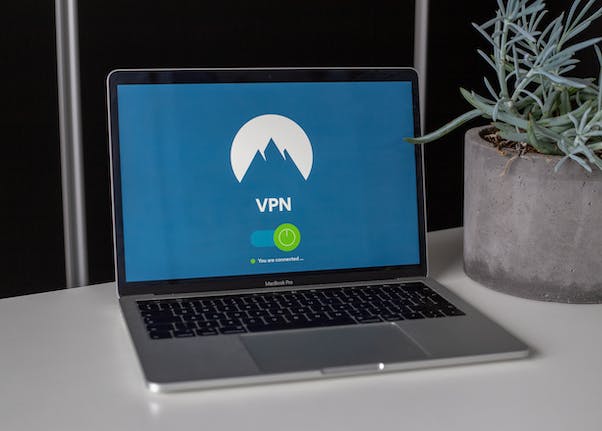 Congratulations, you started a business in the online verse. But this platform comes with a myriad of dangers one must address and prevent at all costs. Data breaches are common even with well-protected corporations, while phishing campaigns lurk behind the most polished emails. The truth is that messing with enterprises is profitable for cybercriminals, and they’re not going away anytime soon.
Congratulations, you started a business in the online verse. But this platform comes with a myriad of dangers one must address and prevent at all costs. Data breaches are common even with well-protected corporations, while phishing campaigns lurk behind the most polished emails. The truth is that messing with enterprises is profitable for cybercriminals, and they’re not going away anytime soon.
On the contrary, the intricacies and complexities of cyber threats continue to grow exponentially. Big companies have robust security and seasoned IT specialists to hold the front, which might be a rather sore spot for startups, given the limited budget and small IT team. However, you’re not out of options.
Affordable tools for limited online protection budget
Undoubtedly, it’s the budget that’s the main obstacle for startups to enjoy peace of mind. Cybersecurity is, after all, important to protect company data and intellectual property. But perhaps more importantly, to keep user information safe with them to gain trust, which is a fundamental basis for any enterprise. So, leaving a bare-bone level of protection is unwise.
You can take several cost-effective steps to ensure the digital health of your company’s website and databases.
1. Invest in a business-dedicated VPN service
 A VPN (Virtual Private Network) is a tool that encrypts web traffic, thus protecting your and customer data. The VPN connection makes it extremely difficult for hackers to intercept any information. That’s because modern business VPNs employ the industry-leading AES-256 encryption used by banks and militaries.
A VPN (Virtual Private Network) is a tool that encrypts web traffic, thus protecting your and customer data. The VPN connection makes it extremely difficult for hackers to intercept any information. That’s because modern business VPNs employ the industry-leading AES-256 encryption used by banks and militaries.
Surely, if you look up the best providers, you’ll find that, in most cases, it’s the battle of NordVPN vs Surfshark vs ExpressVPN. While these are solid options, opt for the business-dedicated solutions offered by the same providers. Besides protection, reputable VPNs help you scale your business as the service outmaneuvers geographical restrictions. That helps facilitate research, expand global ventures, and curb local risks. Moreover, by combining VPNs with ISP proxies, companies can bypass regional blocks and maintain consistent performance.
2. Disable public staging instances
Startups are especially prone to testing the features of a product before delivering them to users. However, keeping the staging instances public creates vulnerability points for hackers to exploit. The simplest solution is to disable public access. Instead, grant access only to authorized accounts.
The limitation of access for instances helps mitigate cyber threats. The fewer people can lay their hands on staging, the better. Moreover, requiring authorization of access hinders cybercriminals from getting close.
3. Configure accounts and use email security
Look out for phishing in the treacherous pond. One click on an attachment or URL in an email sent by a hacker, and data is already transferred forward. So, the best solution is to drill phishing safety into your employees’ heads, employ email security, and protect your work accounts. It sounds like a lot, but it’s simpler in practice.
The best course is investing in email security. But if you’re tight on a budget already, opt for detailed training in phishing awareness. Any team member dealing with emails must be aware of this super common cyber ploy. Naturally, keeping your account credentials complex may also help in some cases if you fall victim to phishing.
4. Secure software development lifecycle
Securing the software development lifecycle (SDLC) is a reliable way to nurture resilience against threat vectors. In summary, SDLC is the process of producing high-quality products, spending as little finances and time as possible. Its security relies on code analysis and practices accompanied by frequent tests.
Employing secure SDLC requires utmost attention as it runs along every application development phase. The project teams must undergo risk assessment, threat modeling and review, and static analysis. Those proceed to security and code testing and finalize everything with security assessment and configuration. It’s perhaps the most demanding preventative measure but delivers invaluable defense against threats.
5. Conduct employee training regularly
 Tools are all dandy, but employee awareness of cybersecurity practices hits the jackpot. Of course, the chances of falling prey to hacker campaigns won’t become virtually zero, but the knowledge will no doubt increase the situations of dodging those bullets. Have IT specialists in your company train the rest of the employees – introduce them to phishing, malvertising, ransomware, and other online dangers. Consider boosting their expertise with cyber security certifications for a more resilient defense against cyber threats.
Tools are all dandy, but employee awareness of cybersecurity practices hits the jackpot. Of course, the chances of falling prey to hacker campaigns won’t become virtually zero, but the knowledge will no doubt increase the situations of dodging those bullets. Have IT specialists in your company train the rest of the employees – introduce them to phishing, malvertising, ransomware, and other online dangers. Consider boosting their expertise with cyber security certifications for a more resilient defense against cyber threats.
Most importantly, don’t let this training stop. Schedule sessions regularly and educate them on advancing cyber threats. It’s even better to enrich the courses with interactive tasks to ensure they can put this knowledge to use in practice. Cybercriminals advance their efforts to steal enterprise and user data. Thus, your employees must keep up to stay safe.
Wrapping up
Since great enterprises are harder nuts to crack, cybercriminals often turn their eyes to budding startups. For this reason, they must equip themselves with the protection of everything online, from sensitive company files to the whole website. The low budget, however, is what keeps startups from developing high-tier security and makes them a lucrative target.
But there are affordable solutions at hand. For example, opt for a business-dedicated VPN, restrict public access to staging instances, secure work credentials, and invest in email security and SDLC. Above all, always train your employees to recognize threats and navigate the web cautiously. Small steps will snowball into great defense from any threats, which you can replace with professional practices and tools as your business grows.